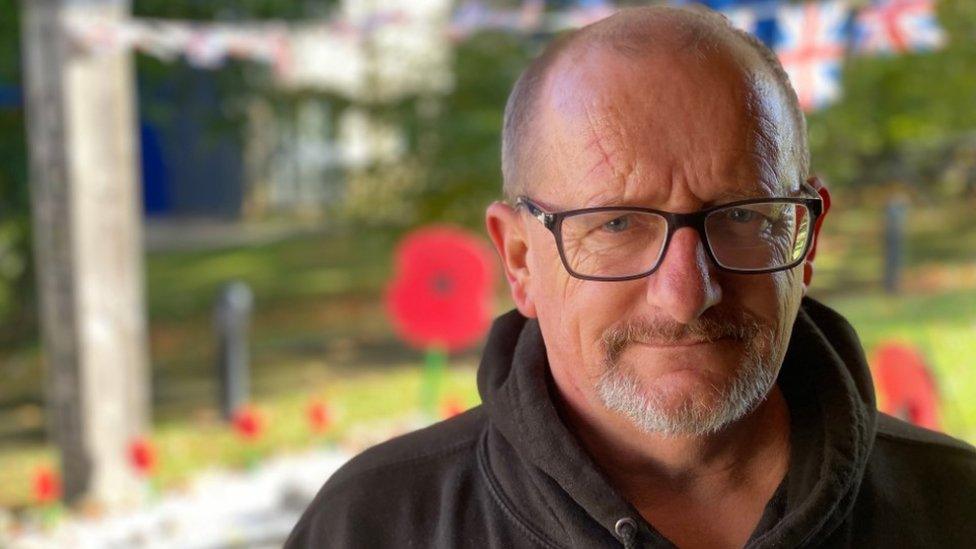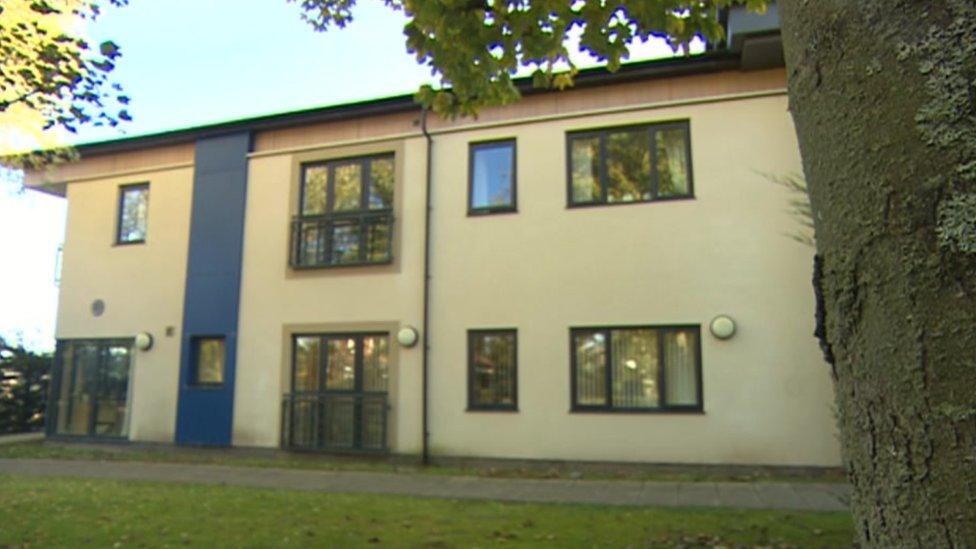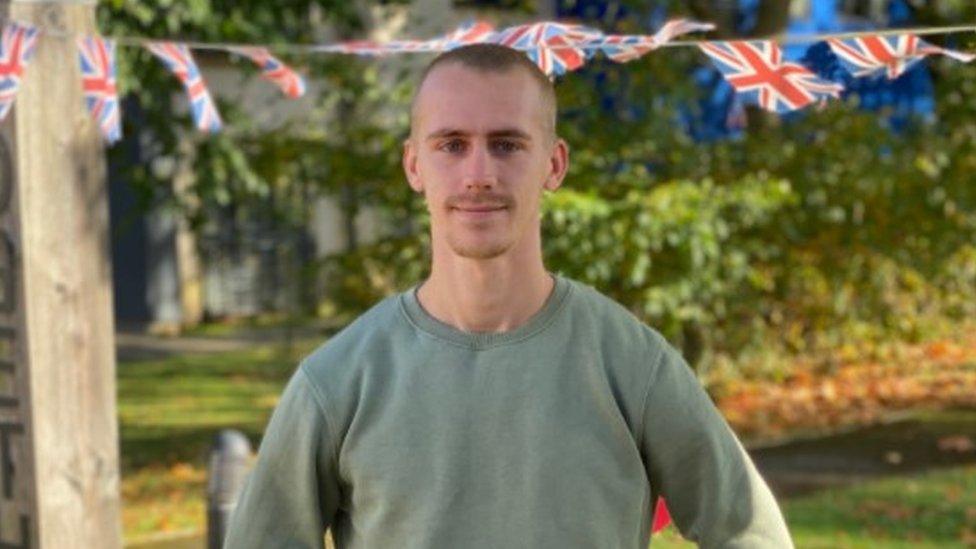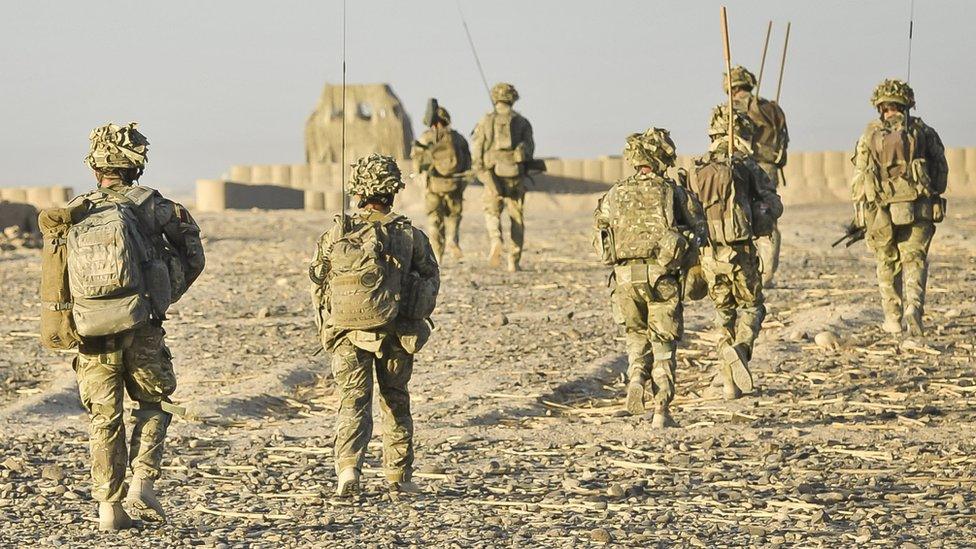Catterick Garrison: Mental health support for homeless veterans axed
- Published

Paul said without the mental health support he received he would not be alive
Homeless veterans living at the UK's largest Army barracks have lost vital mental health support after government funding stopped, a charity has said.
The Riverside charity has helped hundreds of ex-servicemen and women in supported accommodation at the Beacon centre at Catterick Garrison.
Housing continues, but tailored mental health support ended in September.
The government said veterans could access specialist support from its veterans' mental health service.
The Beacon, at the North Yorkshire Army base, has helped over 340 homeless veterans since it opened in September 2011.
However, funding cuts which were introduced at the end of September mean it can no longer offer specialist services, including support for post-traumatic stress disorder, mental health, physical disabilities and substance misuse.

Some 20 veterans currently live at the Beacon centre at Catterick Garrison
Veteran Paul said without the help he had received at the centre, he would not be alive today.
The 63-year-old, who served in the Army for 14 years, said his mental health deteriorated following the suicide of a friend.
"I got very anxious and depressed and eventually it led to the breakdown of my marriage, so I ended up on the streets.
"I couldn't stand any noise or anything, so I ended up shouting at my own children and grandchildren."
Paul eventually sought help from the Beacon and, after two years living there and getting mental health support, he moved into his own house in Bedale.
"Without the help I've got, I wouldn't be here. Now I can cope," he said.

Ryan spent a year homeless, including three weeks living on the streets, before getting help
Veteran Ryan has been living at the centre for several months after being homeless for a year.
The 24-year-old, from Wakefield, said the help he had received meant he had "turned his life around".
He said he was now hoping to get back into the Army.
The Riverside charity said it could not replace the work that was previously done at the centre before funding was cut.
Lee Buss-Blair, Riverside group veteran lead, said: "The support they were able to provide before the loss of funding plays a real part in helping veterans to make a transition back to civilian life in a way that is really sustainable."
Responding, the government highlighted the £2.7m extension of Operation Courage - the dedicated veterans' mental health service.
The government said that as well as £18m spent on "specific mental health support this year", it had also given a further £5m support to military charities and priority access to social housing for veterans.

Follow BBC Yorkshire on Facebook, external, Twitter, external and Instagram, external. Send your story ideas to yorkslincs.news@bbc.co.uk or send video here.
Related topics
- Published19 August 2021
